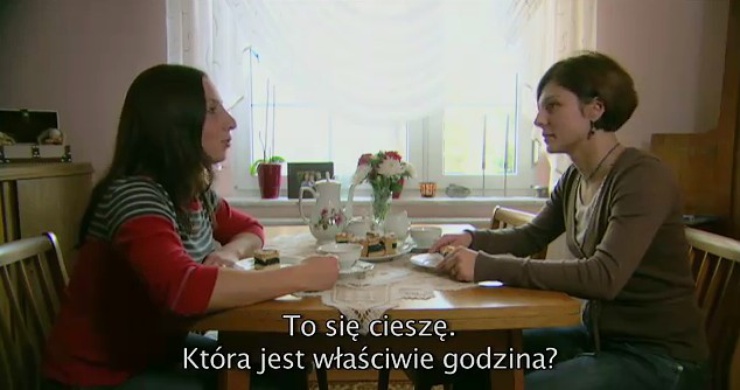
German minority Poland: April census due
Published on
Translation by:
 hkeet
hkeet
There has been an official German minority group in Upper Silesia, Poland for two decades, since the fall of the 'real-socialist' system, which had viewed national minorities as dangerous. Although the relationship between majority and minority groups is not yet free of conflict - Polish opposition leader attacked Silesian identity on 2 April - both sides are more used to each other
'As a German-speaking child I was a bit of an oddity,' says Ewa Stolz. The journalist from Upper Silesia, Poland remembers it well. At the time of reunification between 1989 and 90, only two or three families spoke German in the village of Daniec in the Opole Province, where Stolz is from. She is now the editor-in-chief of the Schlesien Journal ('Silesian News'), a German-speaking programme which has been broadcast on local Polish television since 1992 - especially for the region's German minority.

Two decades on, citizens of Poland are declaring themselves to be of Silesian German nationality, a consequence of world war two. After its war of aggression and extermination against its European neighbours, Germany lost its regions to the east of the Oder and Niesse rivers. The Germans who had lived in these regions fled to the west or were forced to resettle there after the war. Upper Silesia, a region that had consisted of a German west region and a Polish east region between the two world wars, was a special case. Many Silesians felt neither distinctly German, nor Polish. In addition, the communists needed specialists and workforces for the mines in the Silesian coal mining district. Therefore, those who were classified as Autochthoner — in other words, 'locals' — could stay. After this, it was no longer possible to be a German Upper Silesian. 'Until the end of the 1980s, there was always the fear when you spoke German, that an informer could be hiding around the corner,' says Rudolf Urban, editor-in-chief of the German-speaking radio programme Schlesien aktuell ('Silesia Today'), which is played on the state-run local station Radio Opole.
New rights for minorities
In Poland, the situation changed fundamentally as a result of the political developments. People of a national minority, like the German one, could join a union, vote and develop their language and culture. The German minority group in Upper Silesia became an important political power. In doing so, they didn’t just make friends. In the 1990s, many Polish people called their neighbours, who suddenly called themselves Germans, 'Germans with dyed fur'. The history of the criticism is that those who were recognised as being German by the federal office of administration received a German passport in addition to their Polish one. They therefore had access to the EU job market.
In the nineties some Poles would call their neighbours 'Germans with dyed fur'
Another problem was the political beliefs of some representatives of the minority. Many communities suffered the propaganda from German right-wing extremists. Many Polish people were also outraged that Silesians with German identities did not just rebuild German war memorials. They also fixed soldiers’ helmets and commemorative plaques to these iron crosses, which reminded people of the German armed forces and members of the SS. In 2004, the-then Opole Voivode (regional governor) travelled through the region to see to it that illegal symbols were removed. German was adopted as an auxiliary language in government agencies in 22 communities in Upper Silesia. Another success was the bilingual signs put up in 24 communities, both events made possible by the national minorities law of 2005. 'The Polish majority was not impressed by the bilingual place name signs, but they accepted them,' says Krzysztof Ogiolda, editor of a local newspaper in Opole called Nowa Trybuna Opolska (NTO).
National census: 'moment of truth'
At the moment, the German minority group has a completely different problem. In April 2011, the national census begins until June and the result has an influence on the rights of respective minorities. 'If we don’t do well, it could have dire consequences,' says Norbert Rasch, chairman of the association of the social and cultural societies in Poland (TSKN), in Opole Silesia. The last national census in 2002 was a disappointment for the German minority group. In the 1990s, the number of citizens in the whole of Poland who considered themselves to be German was still estimated at 300, 000 to 500, 000. In 2002, only around 153, 000 citizens actually declared themselves to be Germany 'Schlesier'. The current head of the German minority group named language and culture as its focal points. In a brochure entitled Two languages, double the chance ('Zwei Sprachen - doppelte Chance'), the governing body of the minority campaigned together with the house for German-Polish co-operation in Gliwice for bilingual education. Children who can speak fluent German shall no longer be an 'oddity' in Silesia.
Images: main, party in Upper Silesia (cc) marcinlachowicz.com/ on Flickr; in-text screenshot 'Zwei Sprachen - doppelte Chance'; (cc) niemcywpolsce/ Flickr
Translated from Deutsche Minderheit in Polen: Vor dem Fenster steht kein Spitzel mehr


